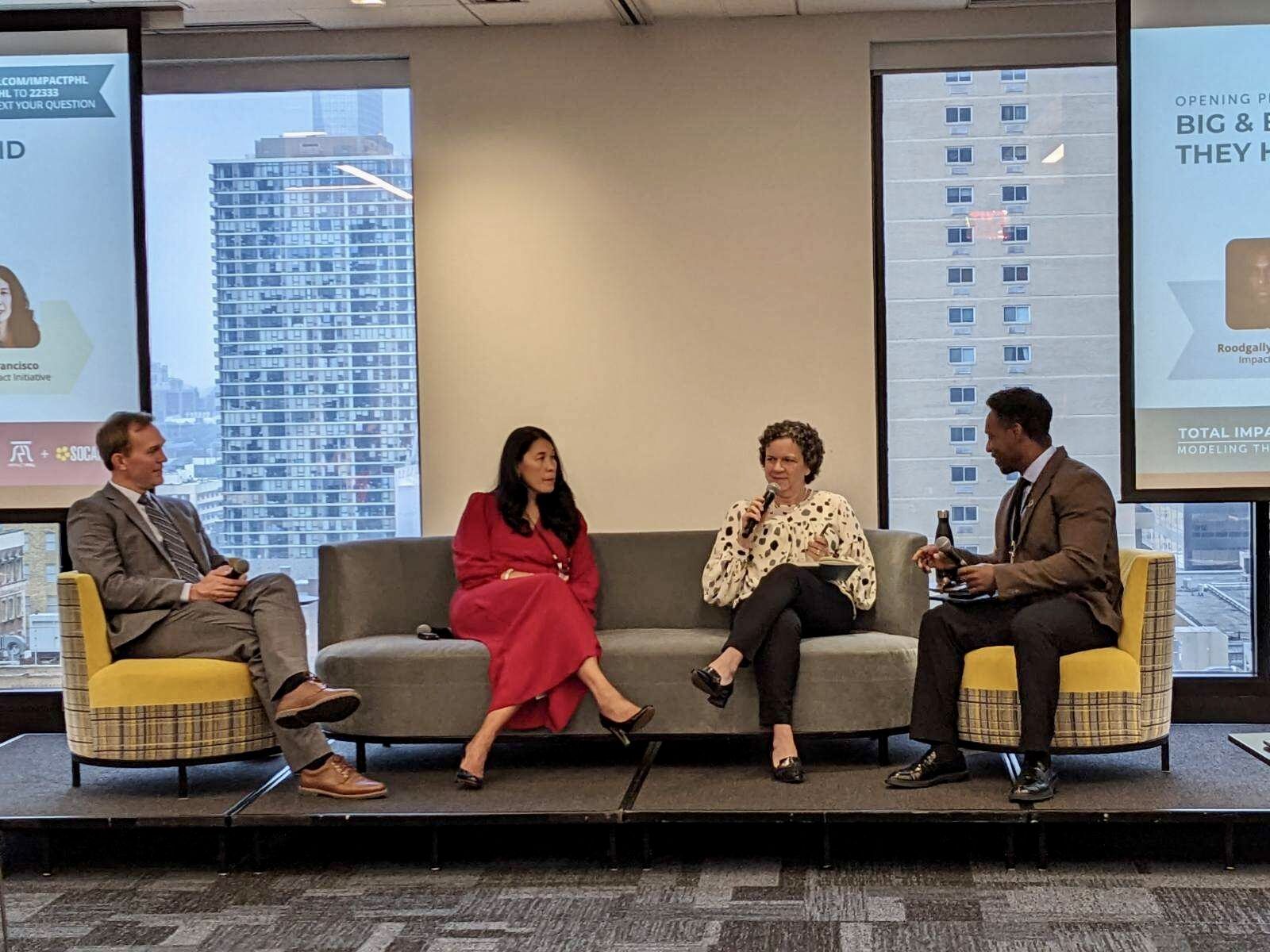Greetings, Agents of Impact!
Featured: ImpactAlpha Original
Indispensable element in many impact investments: ‘catalytic capital.’ Impact investors who seek to ‘do well by doing good’ may want to spare a thought for investors who can accept higher risks, lower returns, more flexible terms or longer repayment periods. Many high-impact enterprises, and even entire sectors, could not have developed but for such catalytic capital. The MacArthur and Rockefeller foundations, along with Omidyar Network, which together have put nearly $1 billion toward catalytic investments, are launching the Catalytic Capital Consortium to make the case that more foundations, development-finance institutions and wealthy individuals should allocate resources to investments that are sometimes dismissed as concessionary or criticized as subsidies.
MacArthur is committing to invest $150 million in matching funds to demonstrate the power of catalytic capital. The first $30 million, matched by $30 million from Rockefeller, will seed investments in Rockefeller’s “Zero Gap” portfolio with the aim of catalyzing $1 billion to meet the Sustainable Development Goals. The new consortium will try to determine just how much catalytic capital is needed. Last year’s survey by the Global Impact Investing Network found that only 5% of roughly $228 billion in impact assets targeted such concessionary returns. Yet survey respondents have long cited “availability of appropriate capital across the risk-return spectrum” as the market’s biggest challenge. “We want very much to see market-rate capital grow and continue to grow,” MacArthur’s Debra Schwartz told ImpactAlpha. “But we have to recognize that market-rate capital doesn’t work in all circumstances. If we don’t have a healthy commitment to the catalytic piece, we’ll be leaving impact behind.”
Keep reading, “Indispensable element in many impact investments: ‘catalytic capital’,” by David Bank on ImpactAlpha.
Dealflow: Follow the Money
India’s TartanSense raises $2.2 million to boost access to farm tech. More than half of Indians depend on farming for their living. Many face income insecurity from water shortages, land contamination, operational inefficiency or poor access to markets. Bangalore-based TartanSense is trying to democratize small farmers’ access to technologies that have largely been available only to large commercial operators. Its first product is a weed-spraying bot to help cotton farmers detect invasive plants and use pesticides sparingly. Its funding round was backed by impact-focused agtech investor Omnivore Partners, Blume Ventures, and BEENEXT. Dig in.
HealthJoy secures $12.5 million to help employees navigate benefits. The Chicago-based startup has developed an app to help people manage their employer health-benefits packages. Founder Justin Holland had struggled to navigate his own insurance coverage and treatment options for an injury. The app allows users to handle insurance claims and track health savings accounts and deductibles. It also identifies prescription drug options and service providers to keep costs down. HealthJoy’s Series B funding was backed by Venture Partners, Epic Ventures and prior investors Chicago Ventures and Sidekick Ventures. Check it out.
Signals: Ahead of the Curve
Broaden the talent pool and cultivate an “impact mindset” as a competitive advantage. Agents of impact with an “impact mindset” see impact investing not as a passing fad, but a fundamental shift in the way markets value social and environmental impact. “The ‘impact mindset’ is no longer the lonely pursuit of a faraway dream that it was not so long ago,” writes Align Impact’s Hummayun Javed, in response to last week’s call for ideas by the GIIN’s Amit Bouri on ImpactAlpha for how to mobilize more talent for impact investing. Says Javed: “Enterprising professionals recognize the opportunity not only in terms of the rising demand for impact investing but, more importantly, the opportunity to be ahead of the curve in a changing environment.”
The talent mobilization is well underway, judging from the strong responses from more than a dozen investment professionals, consultants, academics and other impact investing leaders. Weighing in this week will be agents of impact from Bain Capital, Blue Haven Initiative, Bridges Fund Management, Equilibrium Capital, Flat World Partners, Good Capital Project, Intelligent Impact, Liquidnet for Good, McCombs School of Business, Open Road Alliance, Spectrum Impact, SVX MX, The Legacy Funds and Wharton Social Impact Initiative. Can an impact mindset be cultivated? Can money managers recruit for it? What is it? Here’s a sampling of what we heard:
- Integrated expertise. Asset managers need professionals who can manage “a multi-dimensional bottom line,” writes Flat World Partners’ Kate Starr. “They require employees that can just as easily make an investment case in a room full of bankers as they can in a carbon policy debate.”
- All hands on deck. “We would be better served if we start by putting an end to a conversation that is intended only for investment professionals,” says Spectrum Impact’s Rehana Nathoo (see Nathoo’s “Development professionals-in-training make good impact investors, too). “Training has to include a growing class of cross-sector professionals.”
- Flip power dynamics. “We need to at least strive for balance in listening between those providing the money and those taking the money,” writes Open Road Alliance’s Caroline Bressan. “One way to do that is to cultivate and recruit people with experience running social enterprise businesses to advise the capital holders.”
- Seats at the table. Conscious efforts to include representatives from diverse backgrounds means smarter investment decisions and stronger social equity, says Liquidnet for Good’s Brian Walsh. “We need more leadership to move from lip service to action when it comes to issues of equity, diversity, and inclusion in the composition of the people making capital allocation decisions.”
- How to cultivate an “impact mindset.”
Agents of Impact: Follow the Talent
Alison Fort joins Toniic’s board… Lorraine Wilson, ex- of Merrill, is the new director of investment products at Just Capital… Cambridge Associates is hiring an investment director for its Mission Related Investing research group in Boston… The Aga Khan Agency for Microfinance is recruiting a CEO for its microfinance initiative in Afghanistan… Research and advisory firm Boundless Impact Investing is looking for an alternative fuel industry expert… Agriculture development organization Digital Green is hiring a managing director for its Africa programs in Addis Ababa… Root Capital seeks a global director of human resources in the Boston area… Dalberg’s media arm Dalberg Media is hiring an associate consultant in Copenhagen.
— March 12, 2019.











